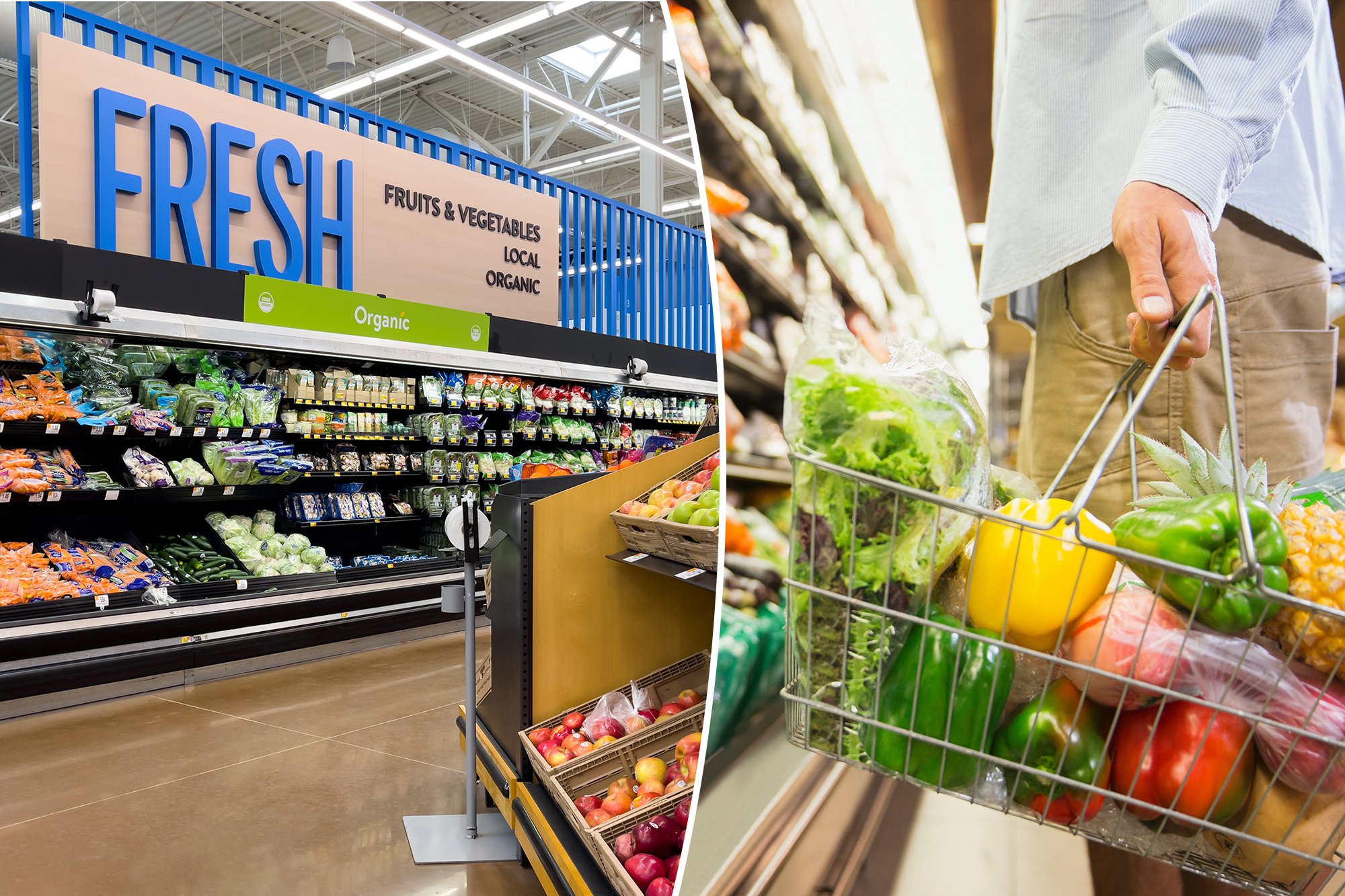Your good health habits could seriously get sick and you don’t know until it’s too late.
While experts unanimously agree that we all have to eat cooler, whole foods, a food policy teacher has a warning: the danger is hidden in the product hallway of your grocery store.
Not all fruits and vegetables are created the same, and a popular option for easy meals that save you time can lead to the price of pollution.
“Passy packaged greens are still one of the most risky items in the grocery store,” Huffington Post Darin Detwiler told Huffington, a professor of food policy at North University -East and author of “Food Safety: past, present and predictions,” he told Huffington Post.
“When we look at past outbreaks, packaged salads have been the main cause of food transmitted disease, with some outbreaks that translate into hospitalization, renal failure and even death.”
Pre-prayer packaged salads can house pathogens such as Listeria, Salmonella and E. Coli and is a higher risk of pollution through the supply chain and are among the worst criminals for food safety.
According to diseases control and prevention centers, the symptoms of food poisoning of bacteria such as Listeria or E. Coli, which cause infections to the gastrointestinal tract, include nausea, vomiting, fever, abdominal pain and diarrhea.
According to a 2024 report in the Journal of Foodborne Diseases, leafy greens are accredited “up to 9.2% of the known diseases of food caused by pathogens” in the United States, with more than 2.3 million cases of illness each year.
What makes these quick vegetables particularly say that heat is needed to kill pathogens, and salads are usually eaten raw, which makes it difficult to reduce the risk of food diseases once they reach consumers.
The contamination of these medium green can occur at different stages of production.
Products can be contaminated during the collection of lettuce by pathogens in water, soil or air, or for wild or domesticated animals. Sometimes leaf green are cultivated near large -scale livestock operations, a proximity that increases the likelihood that E. Coli, Salmonella and Listeria could be introduced through contaminated irrigation water.
Detwiler cites manure lagoons, large pits where livestock waste is stored, as a common source of food pollution.
“The runoff of manure lagoons can be filtered in irrigation channels and contaminate fields with fatal bacteria such as E. Coli,” he said.
Post-chill, lettuce can be compromised by human manipulation, contaminated equipment or water used to eliminate soil.
Typically, lettuce of various farms are processed in a centralized area, which means that the bag of greens is more than a fetid potential menagery than a single source.
“The greens of different farms mix, wash and pack together, so a contaminated leaf can affect thousands of bags in various states,” said Dartwiler.
The large vats that facilitate this washing are also an effective way to spread the bacteria.
In order to prevent the proliferation of pathogens, the greens must be kept cold; If lettuce is not constantly preserved at these colder temperatures throughout the supply chain, bacteria can easily breed and reach the store shelves.
But refrigeration only slows the growth of bacteria, does not kill them.
Green wash is also ineffective to eliminate pathogens. In fact, they are also doubled because of the danger, because they can introduce pollution from the toilet, utensils, equipment and the engaged hands of the washing machine.
What do you need to do a leaves dining room? Carefully consume.
Think completely of the gaps packed and opt for whole heads of lettuce or loose groups. He recommends whole lettuce or spinach heads, which have less surface area for pollution. Just rinse the leaves under cold running water to remove dirt and bacteria at the surface level.
If you are a bag or a bust, Detwiler advises buyers to jump the greens who seem worn, thin or discolored and avoid those of packages that seem wet, as these signs could indicate improper storage.
In addition, avoid submitting your greens to drastic temperature changes. Keeping them in a hot environment or even on the room at room temperature can create an environment for bacteria to grow and damage.
Finally, keep up to date with double -checking expiry dates, just buying green you plan to use in two days.
#Food #expert #warns #riskiest #items #grocery #store #healthy
Image Source : nypost.com
